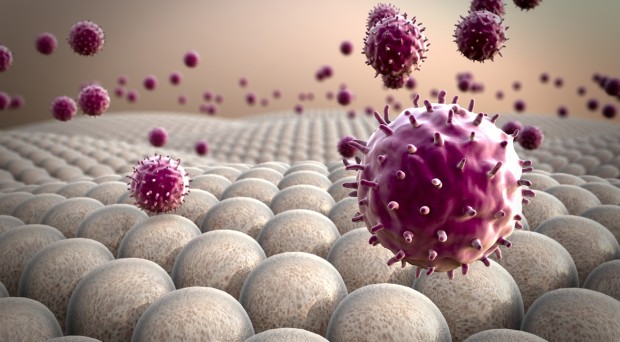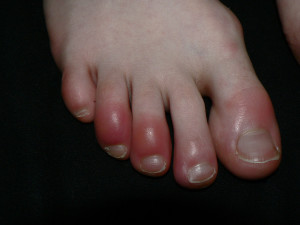
Forever young
 Did you know that one of the reasons women live longer is because their immune system degrades much more slowly than men’s? Well, neither did I until I read Katsuiku Hirokawa and colleagues’ findings in Immunity & Ageing. Another factor in healthy ageing is diet, and the Mediterranean diet and lifestyle have contributed to Sicily being a centenarian hotspot.
Did you know that one of the reasons women live longer is because their immune system degrades much more slowly than men’s? Well, neither did I until I read Katsuiku Hirokawa and colleagues’ findings in Immunity & Ageing. Another factor in healthy ageing is diet, and the Mediterranean diet and lifestyle have contributed to Sicily being a centenarian hotspot.
A side effect of people generally living longer now is that we are more often faced with age-associated diseases, such as Alzheimer’s disease. In fact, Federico Licastro and colleagues call Alzheimer’s ‘the 21st Century epidemic’ in their review of the viral infections that are associated with the disease.
The good, the bad and the inflamed
 On the one hand, inflammation can be beneficial because it is designed to address and eliminate cell damage during injury or infection. On the other, inflammation can get out of hand and lead to immunological diseases such as hay fever, atherosclerosis, neural diseases, and even cancer.
On the one hand, inflammation can be beneficial because it is designed to address and eliminate cell damage during injury or infection. On the other, inflammation can get out of hand and lead to immunological diseases such as hay fever, atherosclerosis, neural diseases, and even cancer.
Inflammation is a complex process and elucidating the mechanisms involved is key to treating and preventing disease. To this end, Jonathan Cherry and colleagues review neuroinflammation and M2 microglial polarization as a potential therapeutic option in Journal of Neuroinflammation, a journal that focuses on innate immunological responses of the nervous system. Similarly, Srabani Pal and colleagues look at the links between chronic inflammation and cancer in Journal of Inflammation.
The impact of modern living
 As our quality of living and ability to overcome infectious diseases grows, so does the prominence of hypersensitivities, including allergies and autoimmune diseases.
As our quality of living and ability to overcome infectious diseases grows, so does the prominence of hypersensitivities, including allergies and autoimmune diseases.
For example, food intolerance and allergies are on the rise and numerous studies are underway to find ways to treat them. Merras-Salmio and colleagues show in Clinical and Translational Allergy that there are still low levels of inflammation to be found in the gut of lactose intolerant children, even after milk has been removed from the diet. This implies that simply removing a food from the diet does not eliminate the effects of intolerance.
In Allergy, Asthma and Clinical Immunology, the official journal of the Canadian Society of Allergy and Clinical Immunology, Philippe Bégin and colleagues convey the successful results of a phase 1 oral immunotherapy study of omalizumab, a humanized antibody, to treat people with multiple food allergies.
Not afraid to ask the important questions
 The immune system’s primary role is to fight infection, and while we have come far in tackling infectious diseases – antimicrobials playing a major part – there is a long way to go. Olivier Garraud and James Li, Section Editors of broad scope journal BMC Immunology, examine the current questions and challenges in infection and immunity research in a new series of reviews.
The immune system’s primary role is to fight infection, and while we have come far in tackling infectious diseases – antimicrobials playing a major part – there is a long way to go. Olivier Garraud and James Li, Section Editors of broad scope journal BMC Immunology, examine the current questions and challenges in infection and immunity research in a new series of reviews.
Antibiotics have given us the opportunity to overcome many infectious diseases that used to plague humanity and animals alike, but we are entering a world where we may not be able to rely on them for much longer. Will infectious agents become kings once again? Jean Carlet, in his commentary for Antimicrobial Resistance and Infection Control, asks the rather ominous question: are we ready for a world without antibiotics?
Have we whetted your appetite for immunology? If so, you may be interested in a few recent immunological research highlights in our Day of Immunology 2015 article collection.
Srimathy Sriskantharajah
Srimathy is the Executive Publisher for Parasites & Vectors, Malaria Journal and other microbiology/ infectious diseases journals at BioMed Central.
Latest posts by Srimathy Sriskantharajah (see all)
- Scientists of the future: Matteo Gregori discusses his research path into Arctic microbiology - 22nd February 2022
- Scientists of the Future: Rebecca Ansorge talks to us about her research on the gut microbiome - 10th February 2022
- Quiz: so you think you know biology? - 6th October 2018
Comments